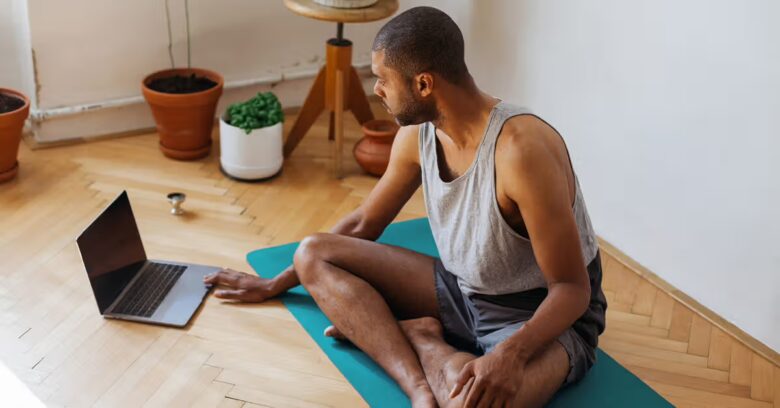Types of Meditation
Meditation is no longer relegated to the realm of esoteric Buddhism; it has now become a popular practice aimed at nurturing well-being. Meditation is no longer the domain of monks or yogis; it has become a tool for improving one’s mental and physical health. It is often said that people nowadays do not have time to meditate because their lives are so fast-paced and stressful. However, it is indeed possible to incorporate mindfulness into one’s daily routine and reap the benefits out of it in the long run.
Picture waking up in the morning feeling completely composed, rather than overwhelmed. Now consider ending your day feeling energized instead of exhausted. Meditation helps you obtain this level of harmony with the world by helping people cultivate resilience against life’s difficulties. This ancient practice supports people suffering from panic or anxiety attacks in today’s world. In addition to that, research has shown that meditation improves immunity.
Would you like to see how meditation can be made into a daily and non-negotiable activity? Let us focus on its positive effects on one’s physical and mental health.
Benefits of Regular Meditation
The outcome of regular meditation goes well beyond relaxation. It has major impacts also in enabling one to enhance focus and concentration, which in turn increases one’s participation in daily activities.
Emotionally, meditation is seen to aid emotional stability as much as it does mental balance. Many practitioners often report being more level-headed and ready to face life’s challenges.
Meditation practice enhances self-awareness as well. This improved self-conscience may results into development as well as enhanced interpersonal relationships.
On a physical level, research has shown consistent meditation may lead to lowered blood pressure and heart rate. These relaxing benefits are helpful toward one’s health status.
These benefits can be achieved by just a few minutes of meditation each day.
Impacts of Meditation on Mental Wellness
When practiced descently, meditation can help a great deal on mental wellbeing. While meditating, when a person practices being mindful and aware of the present, levels of stress and anxiety greatly drops. This is due to the fact the body is encouraged to relax.
The ability to improve the wellbeing of one’s emotion is yet another benefit. Self acceptance and awareness are fostered by meditation practices that aids better understanding of one’s feelings. Such an understanding makes it easier to handle difficult emotions.
In addition, quality of sleep tends to improve with consistent meditation practices. The relaxation helps ease the active thoughts that may impede restful sleep. A few minutes of mindfulness meditation before sleeping fosters deeper and more restorative slumber.
These allow an individual to be more resilient to everyday stressors. Enhanced mental health translates to greater joy and satisfaction in these moments.
- Stress and Anxiety Reduction
This is one of the major challenges faced in today’s fast paced world. One of the many techniques to deal with this relentless pressure is meditation. It’s very powerful and efficient.
Meditation assists in slowing racing thoughts, which causes the individual to focus on the present moment. These thoughts, along with outer distraction, cause self-generated anxiety. This stillness allows space for clarity as well as calmness as there is no negative stimulus to the brain. Regular practice encourages mindfulness, which is the skill of allowing oneself to acknowledge and observe their emotions non-judgmentally.
When deeply inhaling, try to extend the exhale longer than the inhale. With each breath, tension slowly decreases allowing a better environment for relaxation. Measurable peace ensues as tension melts away. An elevated sense of well being is also created by decreased heart rates and cortisol levels.
Practitioners report fewer anxious moments and increased resilience against stressors over time. This energy is not only coping; it is learning how to deal with stress. It gives you the power to deal with challenges in life with ease and self-assurance. Meditation changes how we fundamentally interact with stress.
- Improving Emotional Health
Meditation can be considered a remedy to improve emotional health. It also fosters self reflection and self awareness, giving people the capacity to connect with their feelings on a deeper level.
Meditation facilitates the practice of nonjudging observation of experiences, particularly emotions. This term is known as emotional regulation and can ultimately result in greater resilience. Reactivity can be an issue when responding to challenges. However, responding with clarity rather, can be the goal of all practitioners.
The practice of meditation encourages the blossoming of self compassion and compassion towards other human beings. Kindness is cultivated within and extends outward, promoting considerable social enrichment and interaction.
And of course, the calming effects of meditation aid in the regulation of mood patterns. A systematic practice seems to decrease the irritable and frustration levels of many.
All in all, forming space for silence, helps in the process of acquiring the ability to think. This leads to more happiness and satisfaction in life.
Improving Sleep Quality
Sleep is crucial in restoring one’s health and wellness. One’s sleep quality can increase ebmeditatino by cupping the heart and slowing down the racing mind. It prepares the mind for relaxation by decluttering it.
Mindful meditation before falling asleep can enable one’s body to shift gears into a calmer mode. With meditation, daily stressors can be left aside and sleep can be welcomed more willingly.
Also, deep breathing exercises used in embeneled meditation can generate deeper states of relaxation. Lowered heartbeats and eased muscle tension shifts the body into sleep mode, making it easier and quicker to fall asleep, and stay asleep as well.
As routine practice sets in, the mind has the tendency to gain more clarity which heightens dream recall. And many people experience more of these nighttime visions that are richer and more vivid.
With consistent practice, meditation can promote not only during restful nights but also create an invigorated start each morning when a person wakes up refreshed.
How Meditation Improves Physical Wellness
Physical meditation is one of the aspects of meditation that promotes overall wellness. One of the more remarkable benefits is it enhances the immune system. Routine practice enables one’s infection defenses to strengthen, making the body less prone to ailments.
Meditation can make a notable difference in the way chronic pain is handled. Pain receptors like body scan and mindfulness strengthen the individual’s capacity to perceive their sensations. Over time, this practice makes pain more bearable. Through a wide lens, pain management shifts the focus towards improving the quality of life for these individuals.
Meditation also plays an immense role in enhancing lifestyle. Encouragement towards healthy eating and physical exercise strengthens longevity. The changing dynamics helps with improving physical as well as mental health.
Start your transformational journey with a few minutes of stillness and deep reflection each day. Improvement of the mind and body will effortlessly follow when these practices become a part of your routine.
- Strengthening Immune System
Consistent meditation significantly helps the immune system. Studies indicate that, over time, there were strong indications that sustained instructional practice resulted in increased temp and higher rates of immune response.
Your body automatically enters a relaxed state during meditation. During this period, the body experiences reduced levels of stress hormones such as cortisol, which calm and nurture the body, taking away the worries and stress. With lowered cortisol levels, the body has the capacity to fight infections effortlessly.
Furthermore, meditation enhances blood circulation. It ensures efficient distribution of nutrients and oxygen throughout the body which is essential for different body functions among other things.
Along with these, mindfulness boosts the chances of people making better choices. Meditation practitioners tend to be more conscious of their bodies and therefore, may adopt activities that strengthen their immune system such as healthy eating and exercising.
Meditation is a very useful practice when it comes to maintaining daily health routines, enabling a broader perspective of one’s health. It does not just focus on alleviating stress. It also boosts the body’s natural ability to fight sickness.
- Relieving Sustaining Pain
Chronic pain is suffocating and disheartening at the same time. Many people try to find other resources to subside their pain, and it is no surprise that meditation is becoming increasingly popular due to its effectiveness.
Through guided meditation, people are advised to set all their worries aside and lose themselves in the present. This attitude can minimize or remove the feeling of pain, because it puts the mind in a different zone away from all negativity. Practitioners often report relief from their suffering by acknowledging sensations without attaching a judgement label.
Meditation as a practice also cultivates a state of body relaxation so that one can feel at ease. When muscles are relaxed, tension eases, creating a more comfortable state. It builds tolerance against stress that chronic pains may inflict over the long term.
Deep breathing exercises related to meditation can also encourage the production of endorphins. These hormones can have a positive effect on one’s mood, while also acting as mild pain relievers. After some time, an individual’s routine practice of meditation will not only help them deal with pain better, but also improve the quality of life considerably.
People suffering from chronic pain can benefit from this practice, since it creates the possibility of better coping strategies for dealing with pain.
- Improvement of General Health and Long Life
Meditation enhances one’s chances of enjoying a long, healthy life. While preventing stress, it also promotes an elevated state of awareness of one’s self.
This helps them to make wiser decisions regarding their health. For instance, people who meditate often are more likely to be in tune with their bodies and nutrition, which means they will eat healthier and nourish themselves and exercise appropriately.
In the long run, doing meditation on a regular basis has been shown to lower blood pressure and enhance the efficiency of the heart. These are very important factors that contribute to longevity and there is no doubt that these benefits will allow us to enjoy life for years to come.
Meditation also builds strength to counter the mental degeneration that comes with aging. A person with a more organized mind is better poised to regulate emotions throughout the later years of life.
Routine meditation sets the foundation for healthier living. When you focus on wanting to be relaxed and your mind to be clear, your body is able to release stress and automatically begins the healing process.
Different Types of Meditation Techniques and How to Get Started
There are many different approaches to meditation for various needs and ways of life. For example, mindfulness meditation has you focus your attention on a specific thought or sensation, without judging it. It’s an excellent technique for beginners and can be done anywhere.
If you enjoy moving, consider tai chi or yoga, which are physical postures of breath awareness combined with relaxation, flexibility, and strength work. These practices improve breathing and promote relaxation.
Loving-kindness meditation is a great technique for compassion because it helps you get in touch with deeper emotions towards yourself or others. This kind of meditation consists of repeating phrases that are kind.
Other people will benefit from guided meditations which are presented in a more organized way. Most meditation applications will have some sort of audio session with a teacher conducting the meditation, helping the person to concentrate.
To start, search for an empty room where you can sit without your phone. Focus on your breathing and begin with five minutes. As you get more comfortable practicing, increase the time you dedicate to it every day. Meditating every day will improve your mental health over time.
Incorporating Meditation into Daily Routine for Optimal Results
Make meditation a part of your routine and life as a whole, and enjoy the changes it brings! You can start small by hanging out with a friend who meditates to learn the practice. Even focused breathing or mindfulness can help, five minutes is all it takes to start.
Choose a specific time that works for you, whether it is morning when you want to set the tone for your day, or at night while you are winding down before sleep. The more strives you engage in, the more momentum you build. Make a habit of identifying a separate physical area which is devoted to meditation and ensure it is a zone that aids in relieving you from any disruption.
Try myriad meditation techniques and figure out what works best for you. Beginner level practitioners find guided meditation more useful while practitioners with a little more experience meditative contemplation and mantra reciting meditation better suited. There are a lot of platforms and sites which have such videos and recordings which can be used.
Meditation should not be referred to as a practice that needs to be done in a certain manner; instead, it is something that should allow individual improvement. There are moments when your thoughts shift elsewhere; when it does happen, embrace those thoughts and bring your focal point on something else.
As you continue this practice, focus on how your relationships and work changes after a practicing mindfulness, which cultivates a great impact in your intimate life.
These strides should be done at one’s convenience instead of focusing on achieving the target of inner tranquility. Meditating should feel enriching rather than being compulsory.



